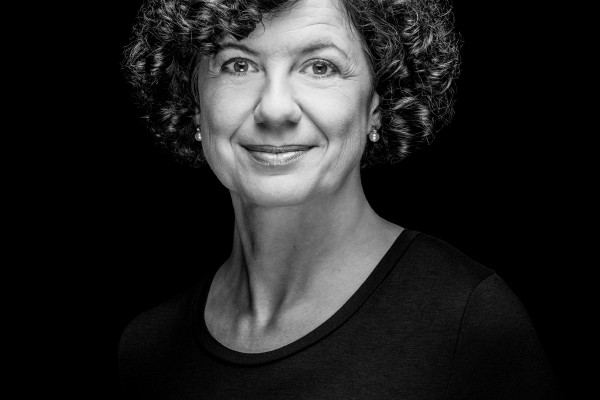
Financial planner Costanza Montagnolo encourages women to start thinking about their financial and pension situation early on. She has a wealth of advice and tips for women who value security and financial independence.
Why have we recently seen a surge in financial blogs and banking services tailored specifically to women?
Women represent an interesting target market. They should generally develop more confidence in the field of investments and prove to themselves that they are no less capable than men. When it comes to pension provision, women have a greater need for advice. Due to events such as maternity or part-time work, many women earn less, at least temporarily, and end up with gaps in their pension insurance. Financial advice helps them identify these gaps and find the best solutions.
Is it a stereotype that women are less interested in financial subjects than men?
In everyday life, it appears than men are indeed more likely to take care of the finances. However, I also find that women like to engage with the topic of pension provision. Mutual insurance for couples and general pension subjects are important to them. However, many women still tend to leave investment issues to their partners. For generations, women were neither trusted nor allowed to manage their own money, giving rise to the impression that women are less interested in finances than men.
Women are keen to understand all the details and therefore need more time for consultation.
Have you come across any other differences between women and men?
Women are generally more security-conscious when it comes to financial issues than men. They are keen to understand all the details and therefore need more time for consultation. If you manage to get women interested in securities, they are willing investors. They have stamina, stick to their strategy and believe in their investment goal.
You have been working in the financial industry for 15 years. What is it that fascinates you about the financial world?
I am particularly intrigued by the connections between the individual subject areas in the field of financial consulting. I want to provide my female clients with all-round advice, not just product-specific information. Let’s assume, a client acquires a property together with her partner. The primary issue is to secure the financing for the purchase, but there is also the question of insuring each other for the event of disability or death. Moreover, the client needs to safeguard her payments after retirement when her income is lower and should also plan any amortisation payments in good time. On top of this, tax aspects must be considered in all financial decisions as well as marriage and inheritance regulations.
How do your advisory services differ from the services offered by banks and insurance companies?
We are an independent financial service provider. Although banks and insurance companies also offer financial planning services, they use the insights they gain to sell their own products. By contrast, we are not tied to any financial institution. In terms of products, we can check the whole market and find the best product for each client. Our clients compensate our services on a fee basis.
Before women come in for advice, they may want to know a bit more about the subject. Are there any books, stock market programmes on TV or courses you would recommend?
Today, there are countless ways of finding out more about financial and pension themes. The problem is rather how to organise the information correctly and pick out the relevant points. Another problem is that, due to their specific interests, financial institutions tend not to disclose all the relevant data to their clients, for instance information regarding the cost of investment funds. Obtaining advice from an independent specialist saves time and money.
The decision to prepare a financial plan usually comes from the women. They usually have a greater appreciation of the benefits than men.
Who are your main clients, women, men or couples?
The majority of my clients are married couples, increasingly also unmarried couples. The latter sometimes have big gaps in their pension insurance. For instance, many unmarried couples are unaware of the fact that certain conditions must be met for partners to qualify for social insurance benefits – if they qualify at all.
The decision to prepare a financial plan usually comes from the women. They want to know the family’s or couple’s financial situation and what is likely to happen in different life situations. Women usually have a greater appreciation of the benefits than men.
When does professional advice make sense?
The most frequent motivation to consult a financial planner is the wish to prepare for the third phase of life. Between the ages of 50 and 55, there is still enough time to set the course for one’s future retirement. Principally, it makes sense to obtain financial advice irrespective of one’s age. Depending on one’s needs, detailed planning is not always necessary. The pension situation in the event of disability or death can be mapped by means of a simple pension analysis.
What has changed in the last 15 years?
New lifestyles, such as unmarried partnerships or patchwork families, are on the rise. We have amendments of social insurance laws, unresolved problems with the laws pertaining to old age and survivor’s insurance and pension plans. As a consequence, insecurity is on the rise and pension provision has become one of the biggest worries of the Swiss population. We can suggest steps that will make our clients feel more secure, at least in respect of their financial concerns.
I recommend that women continue working if possible, even if it is only part-time.
Let’s take the example of a young unmarried woman without kids. What should be her first step if her objective was financial independence?
I would recommend starting with an expense budget to see how much she needs to earn a living and how much she can put aside. These savings should be used to exhaust pillar 3a. Any remaining money should be invested at optimum cost and return. When you are young, your situation can change overnight, you may get married or have children. A high level of flexibility is therefore important and I would recommend short-term products.
Which subjects are particularly relevant to married women with children?
In this constellation, mutual insurance for wife and husband in the event of disability and death is very important, especially if the couple owns their own home and the children are still young. Without insurance, there is a risk that the property will no longer be affordable for the wife or the husband once they are alone.
I recommend that women continue working if possible, even if it is only part-time. Otherwise, they will not be insured under the pension system and won’t build up their pension assets. When women return to longer working hours at a later date, their pension fund often offers them a certain buy-in potential. Voluntary buy-ins and the associated tax savings can be an attractive option.
Where do women need to catch up when it comes to financial issues?
Women often put their children and family first and don’t think about their own financial independence. I therefore encourage them to address their own financial and pension situation at an early stage. We are happy to help!
Costanza Montagnolo is a qualified Financial Planner with a Federal Diploma of Higher Education. She currently works for Avadis Finanzpartner AG, Aarau, a company specialising in independent, fee-based advice in the fields of finances, tax and succession. Before embarking on her financial planning career, Costanza worked as a client advisor at various banks and insurance companies.


